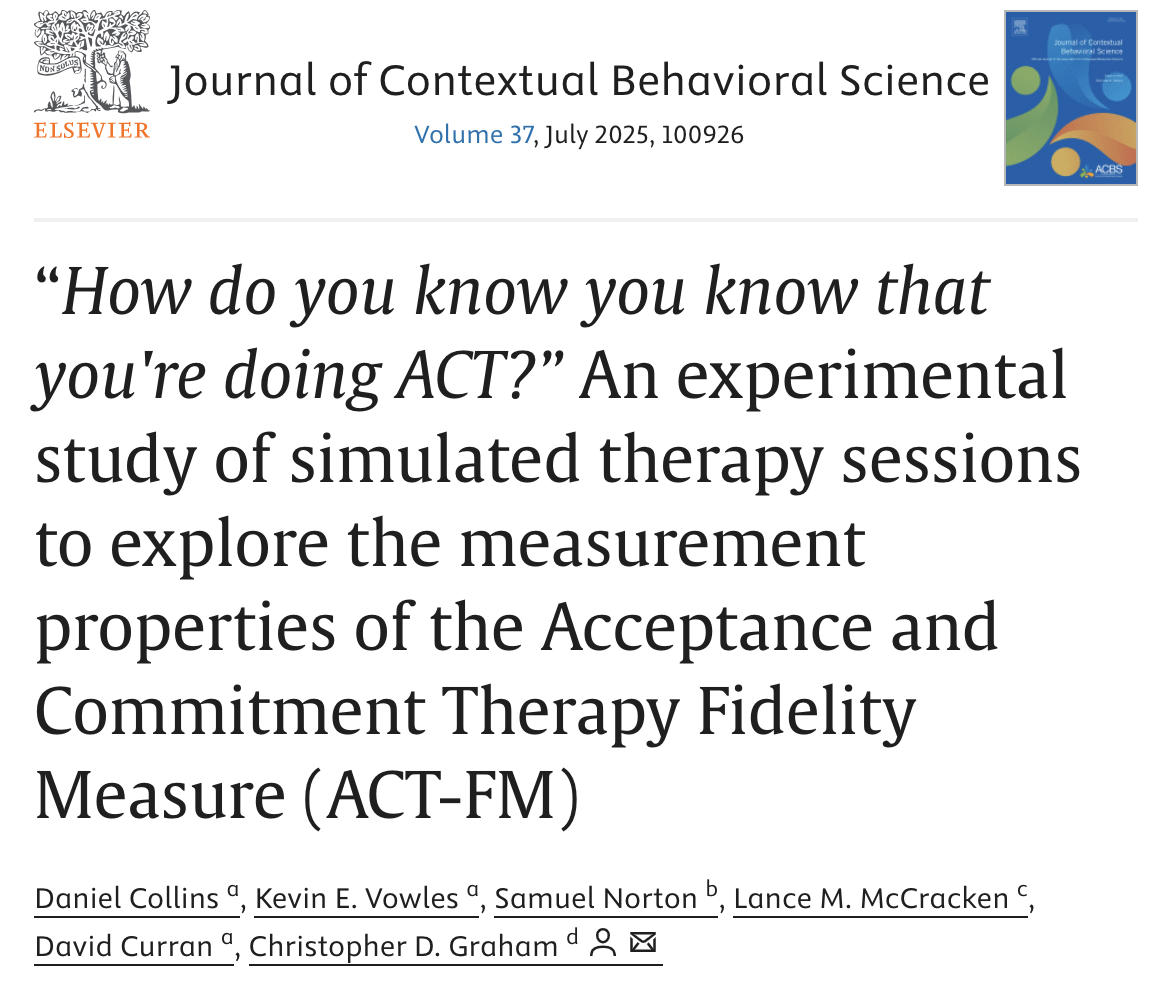Journal of Contextual Behavioral Science (JCBS)
Volume 37, July 2025
Authors
Daniel Collins, Kevin E. Vowles, Samuel Norton, Lance M. McCracken, David Curran, & Christopher D. Graham
Key Findings
- The ACT-FM was designed to measure therapist fidelity to ACT, but measurement properties have not been fully tested.
- The ACT-FM enables effective discrimination of ACT delivered with varying levels of fidelity.
- Moderate levels of inter-rater reliability were apparent, but with wide confidence intervals.
Abstract
The Acceptance and Commitment Therapy-Fidelity Measure (ACT-FM) offers a user-friendly assessment of ACT delivery in clinical trials and clinical practice. However, the ACT-FM's measurement properties have not been adequately explored. This study tests whether it performs two key functions: 1) discriminates between therapy sessions delivered with different levels of fidelity to ACT principles; 2) enables reliable scoring. In total, 14 clinicians with experience in ACT were recruited to an online repeated measures experimental study. Using the ACT-FM, they rated three audio clips of simulated therapy sessions with differing levels of ACT fidelity (high, mixed, and low). Audio clips were otherwise identical in terms of clinician-patient dyad, problem (anxiety), and length (15 min). Analyses indicated that ACT-FM scores for Total ACT Consistency and Total ACT Inconsistency domains differed significantly between audio clips and in the expected directions. Intraclass correlation coefficients indicated moderate inter-rater reliability on both domains and there was 80 % agreement among raters at the item level. However, wide confidence intervals suggest imprecision in reliability estimates. These findings suggest that the ACT-FM effectively discriminates between ACT delivered with various levels of fidelity. Yet, further study of interrater reliability is required.
